At the end of 2012 Dr Stuart Barr and Alistair Ford from the Geospatial Engineering group paid a visit to the University of Innsbruck for a week of discussions, demonstrations and workshops with the ‘Umwelttechnik‘, or the Unit of Environmental Engineering. The group of Professor Wolfgang Rauch specialises in urban water management through novel modelling approaches which link traditional hydraulic modelling with cutting-edge urban, infrastructure and agent-based models. Since the Geospatial Engineering group is interested in environmental sustainability and climate change, the entire journey from Newcastle to Innsbruck was undertaken by train!
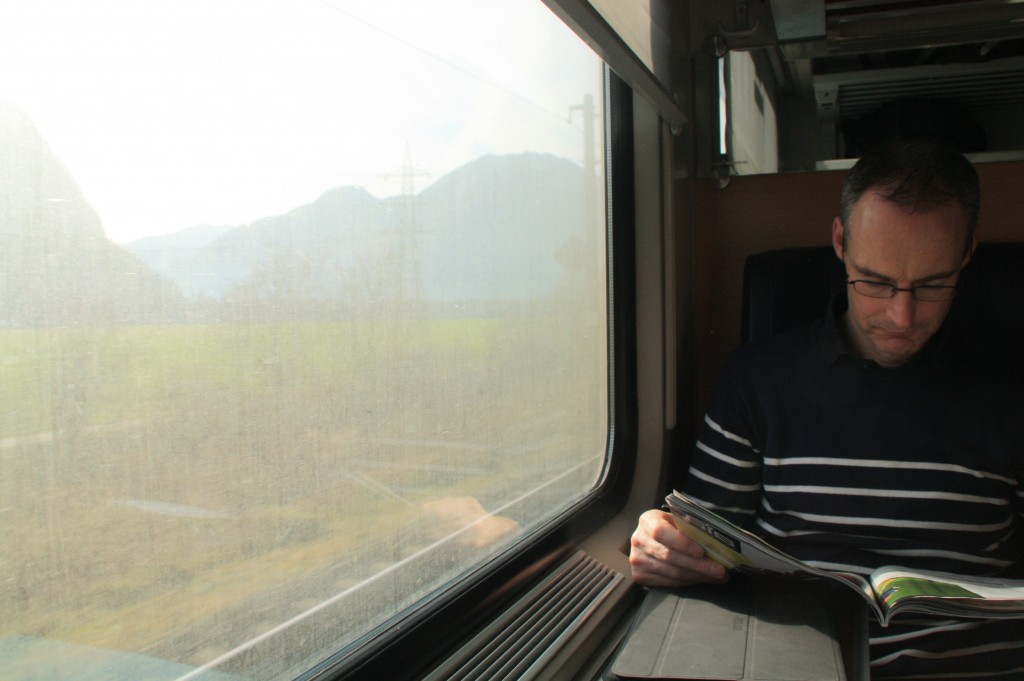
During the week, the researchers from Innsbruck demonstrated their innovative models of water infrastructure development. These link physical simulations of water supply and sewerage systems with future projections of urban growth, allowing assessments of network performance under climate and socio-economic change. Also demonstrated was the ‘ACHILLES‘ approach (link in German) to network failure assessment, ranking each component according to the impact its failure may have on the whole network. The group are based in the Faculty of Civil Engineering, based on the new technical campus of Innsbruck University. The view from their offices is quite impressive…
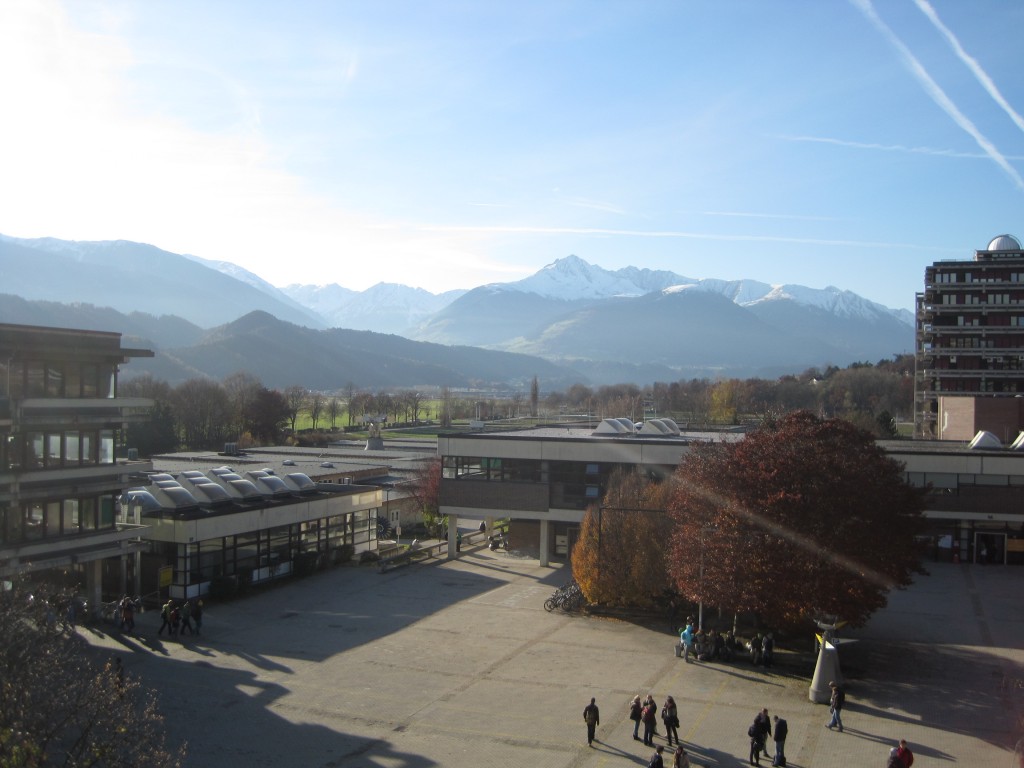
The work of the Newcastle Geospatial Engineering group was also presented to demonstrate alternative techniques for urban development modelling being developed here. Fruitful discussions followed, leading to possible collaboration and crossover activities. The opportunity was also taken to learn about new computing and processing techniques being developed in the Innsbruck group (using GPU processing for hydraulic simulations) and to discuss contrasting open source modelling frameworks being developed by both groups.
After five days of excellent discussions and collaboration, the Newcastle delegation took some time on the Saturday to see the other sights that Innsbruck had to offer before catching the sleeper train back home.
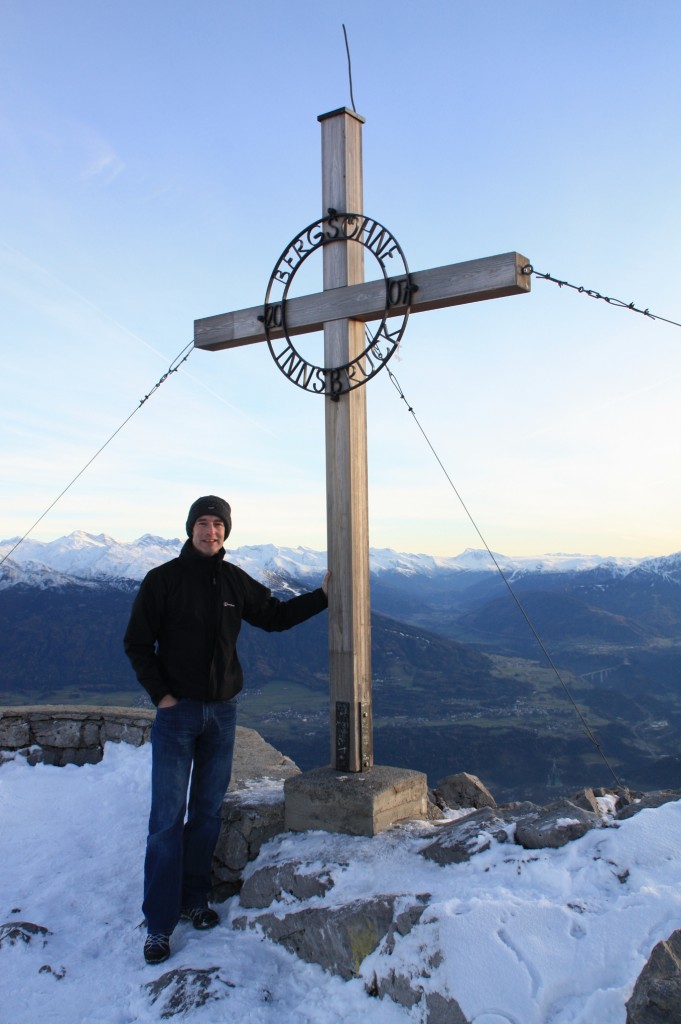
Unfortunately the snow wasn’t quite deep enough for any alpine sports, although I wouldn’t want to try this one anyway:
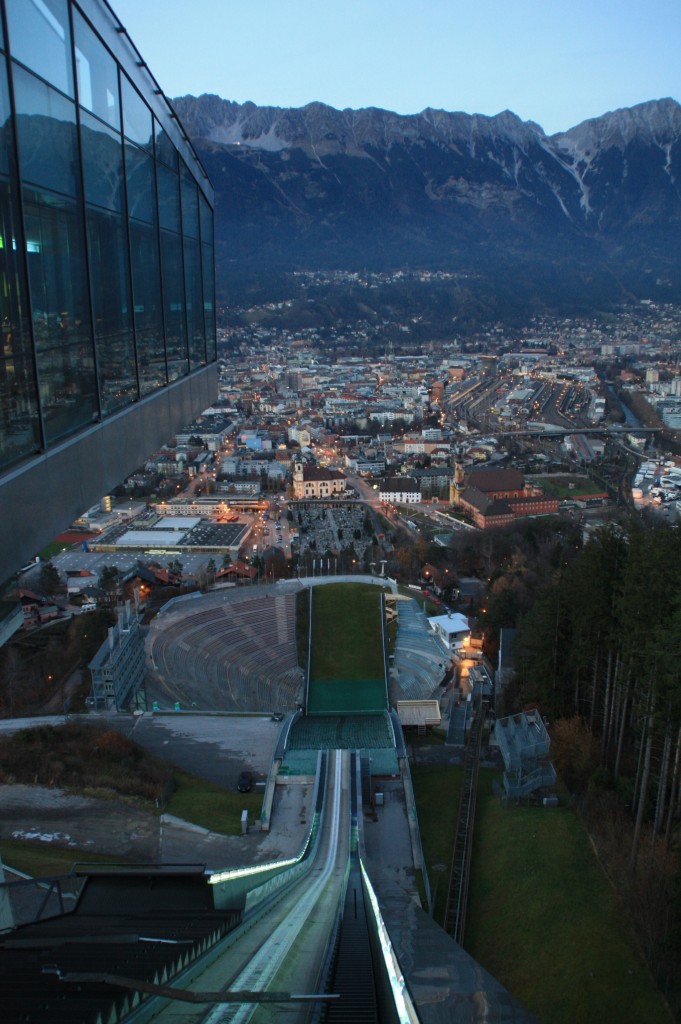
Thanks to Wolfgang and his group at Innsbruck for being such excellent hosts, and look out for news of future collaborations between the two groups.
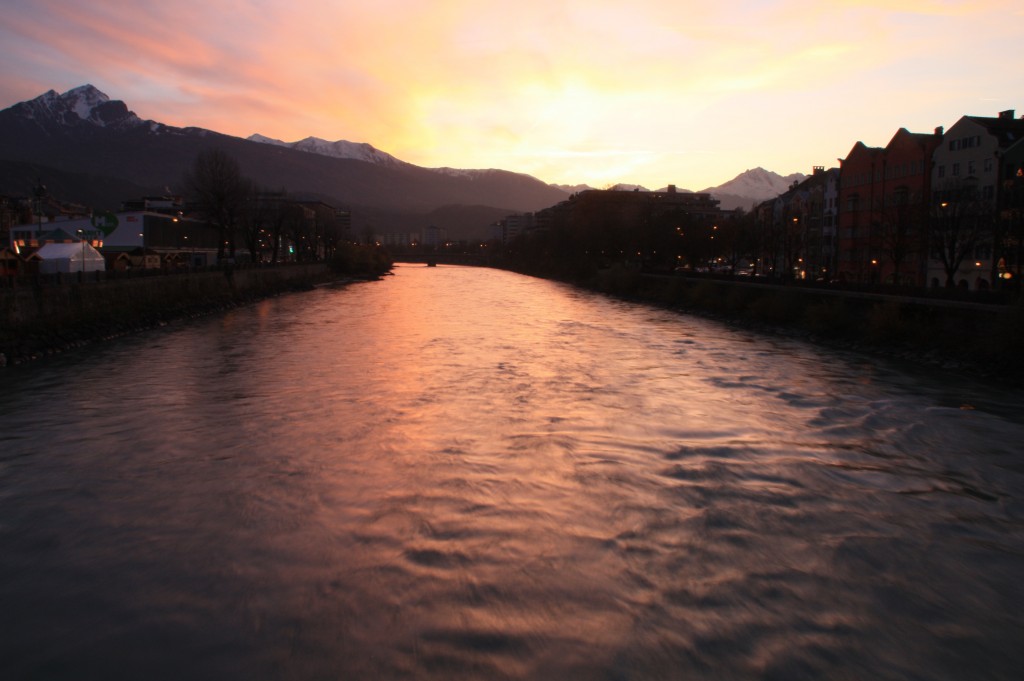
Ali
